tangibles
tangibles and technology
two realms [1997]
our physical environment
cyberspace
bits leaked through screens as photons
lack of coupling
traditional GUI desktops and laptops
two realms [2022]
constantly wired to both
smartphones
touch interaces
interacting with
physical objects
rich set of skills and practices
neglected in HCI
lack of diversity of input/output
moving beyond GUI
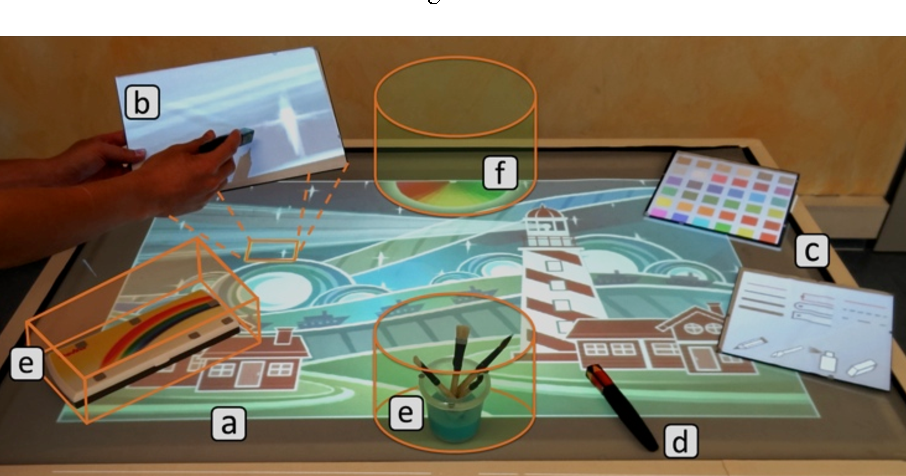
beyond GUI
rectangular display, mouse, and keyboard
touch devices
towards ubiquitous computing
tangible user interfaces (TUIs)
augment physical world by coupling digital information to physical objects
shift from desktops to bodies and environments
take advantage of natural affordances
seamlessness of interaction between people and information
tangible bits
goals of tangible bits
bridge gap between digital and physical environments
by making digital information tangible
make bits accessible through physical environment
interactive surfaces
transformation of each surface into an active interface

coupling bits and atoms
seamless coupling of everyday graspable objects with digital information
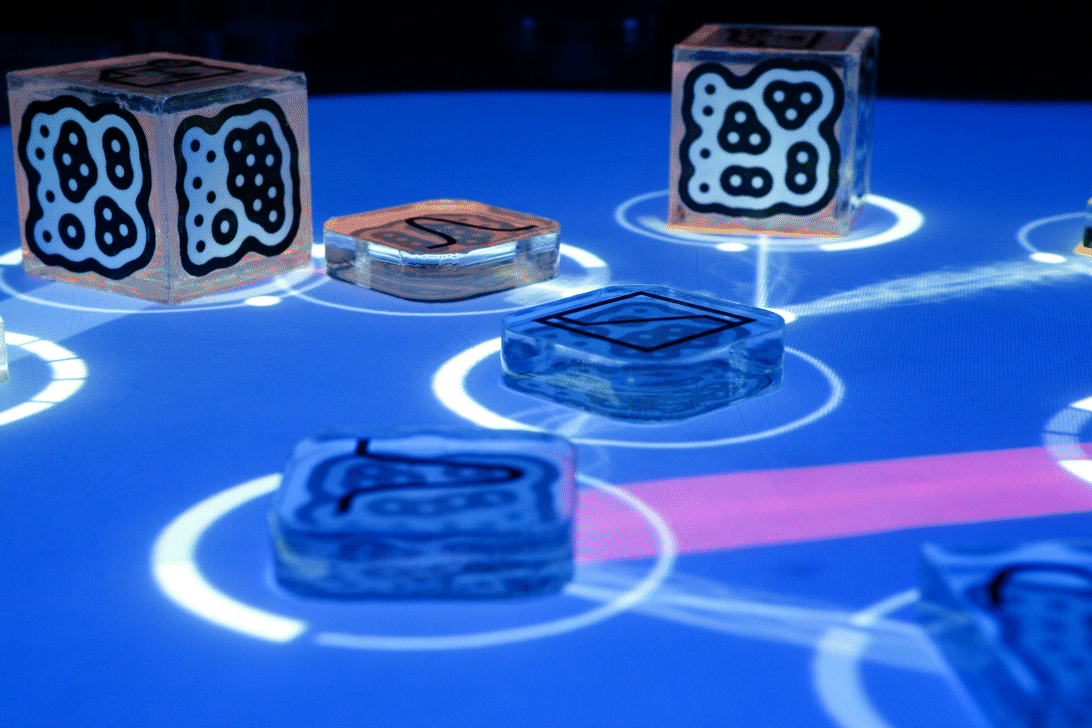
ambient media
use of ambient media such as sound, light, and airflow at the periphery
physical matter into interfaces
solids, liquids, gases
improving quality and bandwidth of interaction
grasp and manipulate foreground bits with physical objects
awareness of background bits through ambient media
foreground vs background activity
foreground: intentional activities
background: take place in the periphery
HCI focus on foreground
tangible bits: smooth transition between foreground and background
research prototypes
metaDESK
transBOARD
ambientROOM
metaDESK
push back from GUIs
push forward from unaugmented physical world
inherit from historical instruments
physical instantiations of GUI elements in TUI
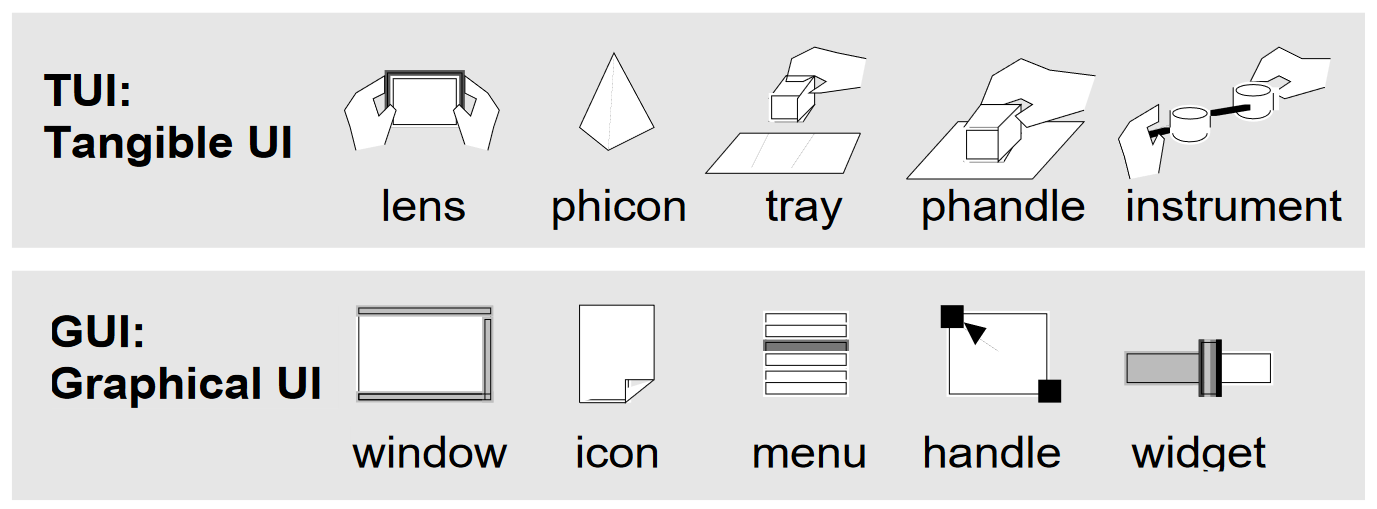
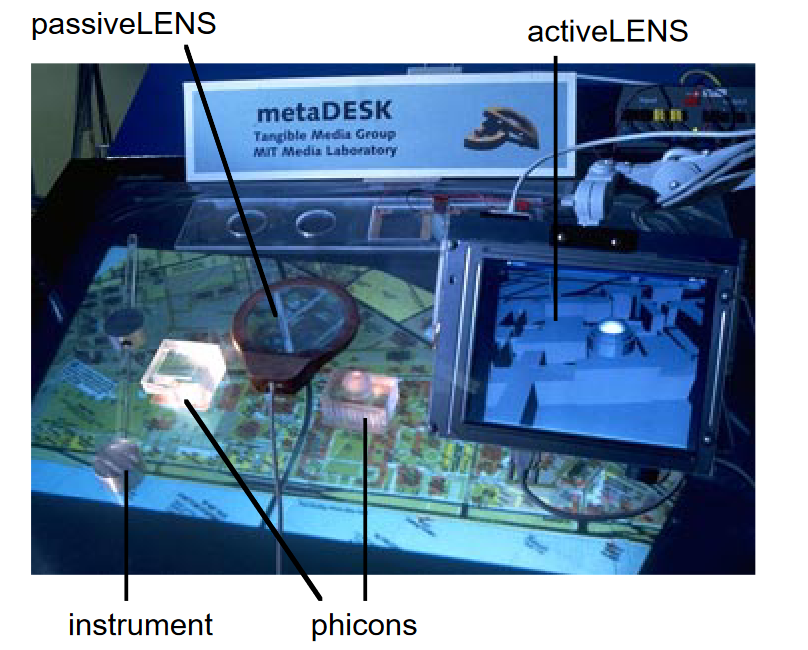
physical models of landmarks as phicons
placing phicon on desk brings up a map
map is positioned so landmark is at phicon
phicons: containers and handles
container of bits representing campus
handle for manipulating the map
rotation and translation
transforms both 2D and 3D views
interacting with three spaces
second phicon
rotates and scales map, both bound locations appear at phicons
two handles allowing simulatenous scale, rotate, and translate
bimanual interaction for single user
cooperative with multiple users
locus of control
no single point as in GUI-based interfaces
constrained by physical environment
multiple pathways for different numbers of users
activeLENS displays 3D view
of campus
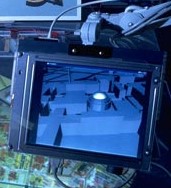
grasping and moving activeLENS to navigate 3D representation
passiveLENS
interact with satellite imagery
future/past-time overlay views
magic lens metaphor
magic lens
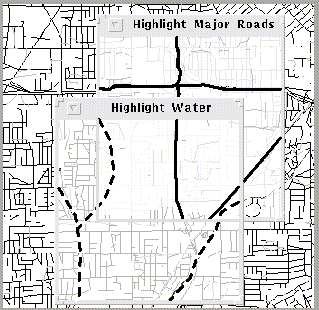
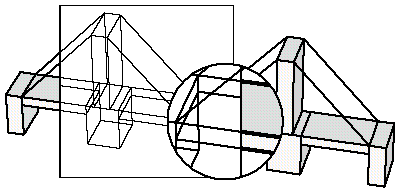
ambientROOM
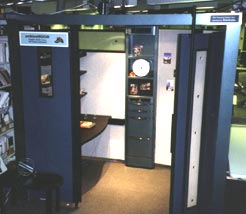
ambient media
ambient light, shadow, sound, airflow, waterflow
periphery of human attention
subtly display and communicate information in background
transitions between background and foreground
phicons as handles
sources and sinks of information
move phicon into proximity of sink
example
toy manufacture
new toy car just advertised on website
place toy car next to speaker (sink)
rainfall sounds indicate number of visitors to website
bring toy car to metaDESK to see website activity information
transBOARD
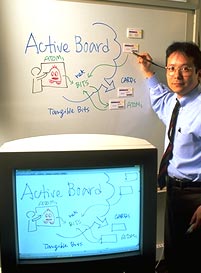
physical whiteboard
networked and digitally-enhanced
interactive surface
absorbs information from the physical world
transforms information into bits
drawing activity
distributed users to view realtime and recorded
ambient expression through scratching sounds
one-way filter
absorbs bits from physical world into digital
metaDESK is bidirectional
now we have digital whiteboards
mixed reality
hyperCARDS
magnetic cards that attach to whiteboard
store digital strokes created while attached
remote users can monitor with identical card
transportable
summary
tangible interaction: coupling physical and digital
support both foreground and background interaction
tangible bits: smooth transition between foreground and background
physical affordances and familiarity
form of mixed reality with focus on physical